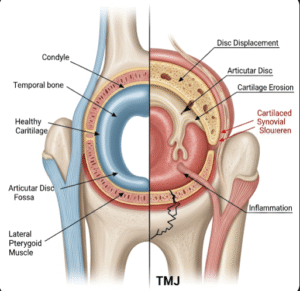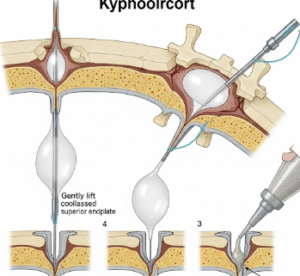Overview
Changes in appetite refer to a noticeable increase or decrease in the desire to eat, which can be temporary or persistent. Such changes may arise from physical health issues, mental health conditions, lifestyle factors, or medication side effects. In Korea, hospitals and clinics provide comprehensive evaluation, nutritional counseling, and medical treatments to address appetite changes and their underlying causes. Proper management ensures optimal nutrition, overall well-being, and prevention of complications related to weight loss, obesity, or nutrient deficiencies.
Key Facts
▶ Prevalence: Changes in appetite are common across all age groups and can fluctuate due to stress, illness, or environmental factors.
▶ Causes: Medical conditions (diabetes, thyroid disorders, gastrointestinal diseases), mental health issues (depression, anxiety), medications, or lifestyle changes.
▶ Associated Symptoms: Weight loss or gain, fatigue, mood changes, digestive discomfort, and altered energy levels.
▶ Treatment Options in Korea: Medical evaluation, nutritional therapy, counseling, and medication management.
▶ Importance: Early identification and intervention prevent malnutrition, obesity, or complications from underlying diseases.
What is a Change in Appetite?
A change in appetite is any deviation from your usual pattern of eating, either increased (hyperphagia) or decreased (anorexia).
▶ Decreased Appetite (Anorexia): Reduced desire to eat, often associated with illness, stress, or medications.
▶ Increased Appetite (Hyperphagia): Excessive hunger, sometimes linked to metabolic conditions, hormonal imbalances, or psychological factors.
▶ Sudden vs. Gradual Changes: Sudden changes may indicate acute illness or medication effects; gradual changes can be related to chronic conditions or lifestyle factors.
▶ Associated Patterns: May include cravings, aversions, nausea, early satiety, or binge eating episodes.
Note: Persistent appetite changes should always be evaluated to rule out underlying health issues.
What Symptoms Are Related to Changes in Appetite?
▶ Weight Loss or Gain: Unintended changes in body weight.
▶ Fatigue or Weakness: Resulting from insufficient caloric intake or malnutrition.
▶ Mood Changes: Irritability, anxiety, or depression linked to appetite fluctuations.
▶ Digestive Issues: Nausea, bloating, constipation, or diarrhea.
▶ Sleep Disturbances: Appetite changes can affect sleep patterns.
▶ Cravings or Food Aversions: Sudden preference for certain foods or complete avoidance.
▶ Nutrient Deficiencies: Resulting from decreased intake or unbalanced diet.
▶ Changes in Hydration or Thirst: Sometimes accompany altered eating patterns.
What Causes / Possible Causes
Appetite changes may result from physical, psychological, or environmental factors:
▶ Medical Conditions: Diabetes, thyroid disorders, gastrointestinal diseases, infections, or cancer.
▶ Mental Health Disorders: Depression, anxiety, stress, or eating disorders.
▶ Medications: Antibiotics, chemotherapy, antidepressants, or corticosteroids.
▶ Hormonal Changes: Pregnancy, menopause, or endocrine disorders.
▶ Lifestyle Factors: Sleep deprivation, irregular meals, or excessive exercise.
▶ Substance Use: Alcohol, nicotine, or recreational drugs can affect appetite.
▶ Environmental and Social Factors: Changes in routine, travel, or seasonal variations.
▶ Neurological Conditions: Parkinson’s disease, dementia, or stroke affecting appetite regulation.
Note: Identifying the root cause is essential for effective management and prevention of complications.
When Should I See a Doctor?
▶ Persistent Appetite Changes: Lasting more than a few weeks without explanation.
▶ Unintended Weight Loss or Gain: Rapid or significant changes may indicate underlying disease.
▶ Associated Symptoms: Fever, fatigue, digestive issues, or mood disturbances.
▶ Medication-Related Changes: Appetite changes after starting new drugs.
▶ Difficulty Eating or Swallowing: Could indicate oral or gastrointestinal problems.
▶ Nutritional Deficiencies: Symptoms like hair loss, brittle nails, or anemia.
▶ Children or Elderly: Appetite changes may lead to growth or health complications.
▶ Chronic Conditions: Diabetes, thyroid disease, or gastrointestinal disorders complicating management.
Tip: In Korea, specialists including endocrinologists, gastroenterologists, psychiatrists, and nutritionists provide comprehensive care for appetite changes.
Care and Treatment
Management depends on the underlying cause, severity, and impact on health:
▶ Medical Evaluation: Comprehensive assessment including physical exam, history, and laboratory tests.
▶ Nutritional Counseling: Tailored meal plans to meet caloric and nutrient requirements.
▶ Medication Adjustment: Review and modify medications that affect appetite.
▶ Behavioral Therapy: Cognitive-behavioral therapy or stress management for appetite changes due to psychological factors.
▶ Hydration and Diet Management: Ensuring adequate fluid intake and balanced meals.
▶ Exercise and Lifestyle Modifications: Regular physical activity to stimulate appetite and improve metabolic health.
▶ Monitoring: Track weight, food intake, and symptom patterns to guide treatment.
▶ Supplements: Vitamins, minerals, or high-calorie supplements if dietary intake is insufficient.
Treatment Options in Korea
Medical Evaluation:
▶ Endocrinology Consultation: Assess thyroid, hormonal, and metabolic causes.
▶ Gastroenterology Assessment: Evaluate digestive disorders or absorption issues.
▶ Psychiatry or Psychology: Address appetite changes due to depression, anxiety, or eating disorders.
▶ Laboratory Tests: Blood glucose, thyroid function, nutrient levels, and inflammatory markers.
▶ Imaging Studies: When structural gastrointestinal abnormalities are suspected.
Advanced Therapies:
▶ Medications: Appetite stimulants, anti-nausea agents, or treatment for underlying conditions.
▶ Behavioral Interventions: Counseling for stress, depression, or eating disorders.
▶ Dietary Programs: Personalized meal plans designed by registered dietitians.
▶ Multidisciplinary Care: Combined approach from gastroenterology, endocrinology, psychiatry, and nutrition specialists.
Rehabilitation & Support:
▶ Patient Education: Guidance on healthy eating habits, meal timing, and lifestyle adjustments.
▶ Follow-Up Care: Regular monitoring of weight, appetite, and underlying condition.
▶ Specialist Clinics: Korean hospitals offer integrated care for appetite management, combining medical, psychological, and nutritional expertise.
Outcome: With timely evaluation and comprehensive treatment in Korea, changes in appetite can be effectively managed, ensuring proper nutrition, improved well-being, and prevention of complications related to weight, energy, and overall health.













